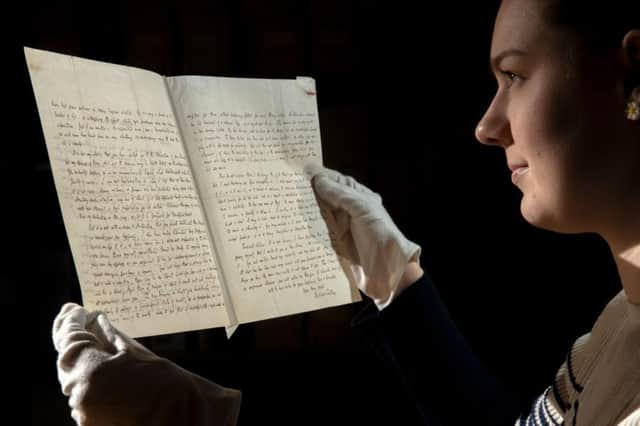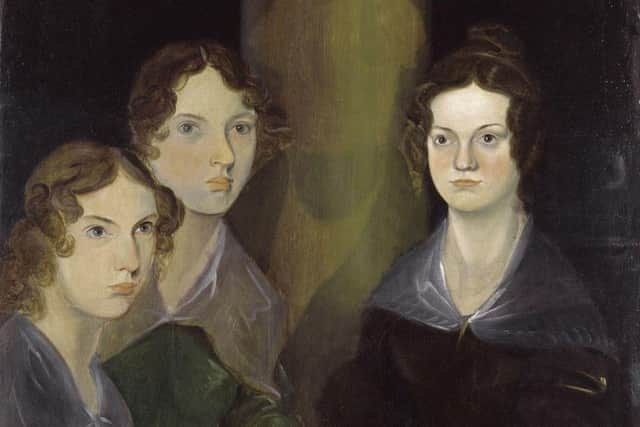MPs acknowledge gender inequality between the covers that has persisted since Charlotte Brontë was warned off writing


Tonight, parliament confirmed what the literary world had long known – inequality is as rife now as it was 182 years ago.
Female authors today earn around a quarter less than their male counterparts, according to the All Party Writers’ Group.
Advertisement
Hide AdAdvertisement
Hide AdIn a wide-ranging report that calls on the Government to take action on protecting writers’ copyright and to recognise the contribution to the economy made by the creative sector, the group of 34 MPs and 35 peers said that persisting gender inequality results both from lower rates of pay and a poorer breadth of opportunities, particularly in film and television.


Only 16 per cent of working screenwriters are women and just 14 per cent of prime-time TV is written by women, the report said.
Advocating the establishment of a “creators’ council” to study diversity, it also said that writers generally had seen their earnings fall by some 42 per cent in the last decade.
Joanne Harris, the Barnsley-born author of Chocolat, which was made into a film starring Juliette Binoche and Johnny Depp, said she was not surprised by the findings, and that writers had long recognised that their incomes were in decline.
Advertisement
Hide AdAdvertisement
Hide Ad“It constitutes worrying evidence that the writing profession is set to get less diverse rather than being the place for all kinds of voices that it needs to be,” added Ms Harris, who is on the board of the writers’ group.
“Writing is not just a fun pastime. It’s a real job, that real people do. It’s about time those real people were fairly rewarded,” she said.
At the Haworth parsonage on the West Yorkshire moors that was Charlotte Brontë’s home, and in whose museum the letter to her from the poet laureate Robert Southey is preserved, the report also made familiar reading.
Charlotte and her sisters hid their gender at first behind male or androgynous names, a practice followed by others for generations to come, from George Eliot to Louisa May Alcott. Even JK Rowling chose to use her initials rather than her first name so as not to dissuade an audience of young males from reading a book by a woman.
Advertisement
Hide AdAdvertisement
Hide AdLauren Livesey, at the Parsonage Museum, said the Brontë sisters’ work was considered “coarse” in polite literary circles.
“They were called ungodly, unchaste, unfeminine. One review drew a direct line between Jane Eyre, the Chartist movement and revolution in Europe,” Ms Livesey said.
“There were people saying the book was going to lead to the downfall of civilized society. If those people had known for a fact that it was written by a woman, it would have added a whole other frisson.”
It was her biographer, Mrs Elizabeth Gaskell, who helped restore Charlotte’s reputation, casting her as “a pious, hard done -by, long suffering poor Northern woman,” Ms Livesey added.
Advertisement
Hide AdAdvertisement
Hide AdThe report says Amazon is now the most prominent bookseller in Britain. The website is estimated to have an 80 per cent share of online physical book sales, and the report calls on the Government to lower the rate of VAT charged on the books it sells in electronic formats.
Nicola Solomon, chief executive of the Society of Authors, said: “We are pleased to see MPs recognise the importance of preserving our copyright regime after Brexit. We have argued for a long time that action needs to be taken to address the decline in authors’ earnings. This has now been officially acknowledged.”